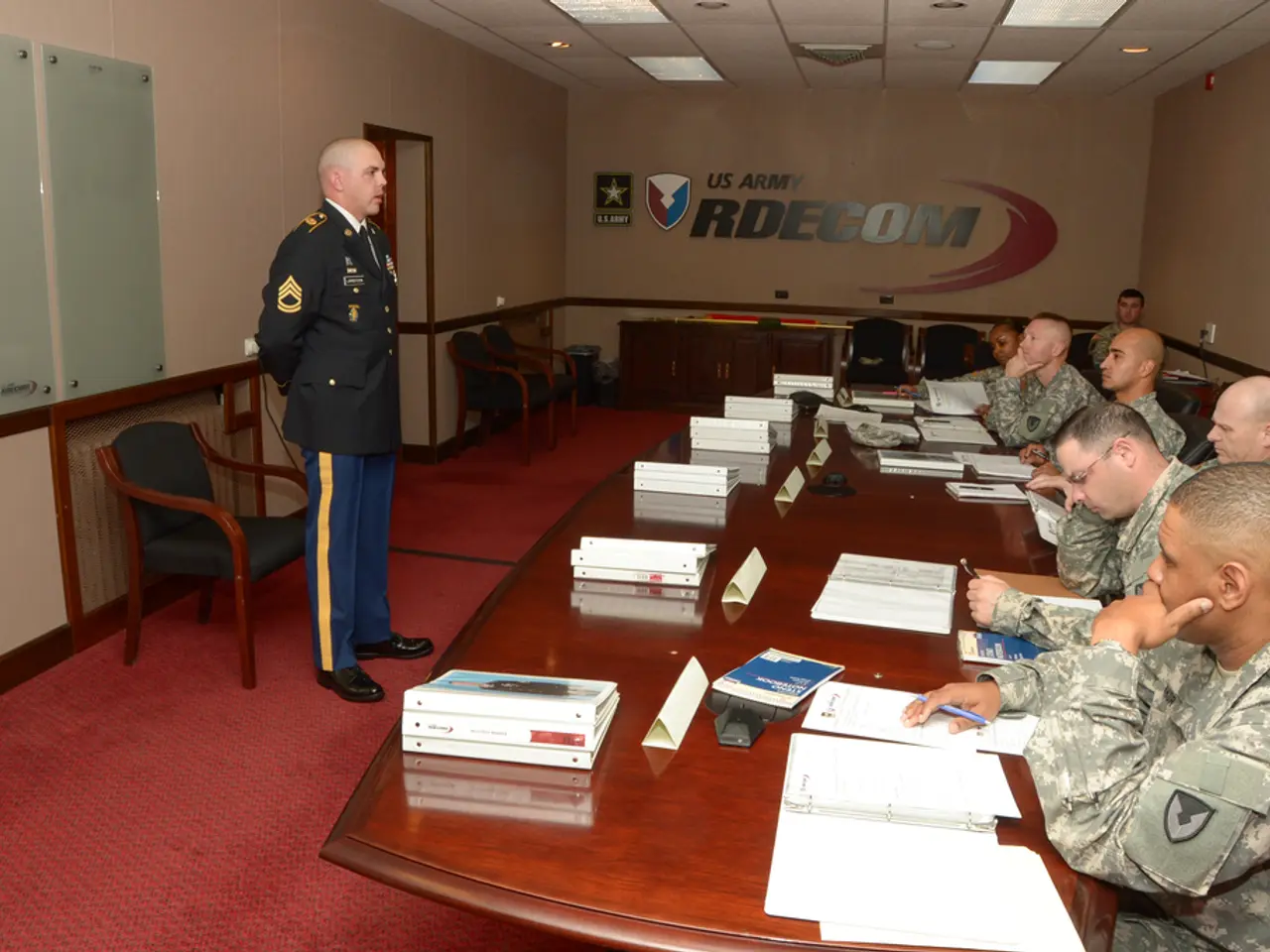European officials are working on assuring Kyiv about the presence of American soldiers in Ukraine being irrelevant
The United Kingdom's Prime Minister Starmer has announced that representatives of the so-called Coalition of the Willing will meet with their US counterparts to solidify security guarantees for Kyiv. This comes as Germany and its partners are also working on such guarantees for Ukraine.
The plans for security guarantees involve a European-led force supported by significant contributions from the United States and cooperation among key European powers, including Germany, France, and the UK. The framework under discussion resembles an "Article 5-like" pact, similar to NATO's collective defense commitment, aiming to deter future Russian attacks post-conflict.
The United States is prepared to provide supporting strategic assets such as intelligence, surveillance, reconnaissance (ISR), command and control (C2), air defense systems, aircraft, logistics, and ground-based radar. These assets would enable and protect European ground forces deployed in Ukraine as part of a postwar security arrangement.
European countries would contribute the majority of the ground troops, with officials indicating a commitment from European states to deploy "tens of thousands" of troops to a European-led deterrence force within Ukraine. This force would be positioned deeper inside Ukraine beyond a demilitarized zone patrolled by neutral peacekeepers.
Ukrainian forces would be armed and trained by NATO states and would defend behind a demilitarized zone secured by neutral peacekeepers, while the European-led force would provide a "third line of defense," with US strategic enablers operating in the rear.
Leaders from the US, Germany, France, and the UK emphasize the importance of making the Ukrainian armed forces strong first, as the initial layer of defense, with the second layer being the external security guarantees provided by these allied states.
Diplomacy around these guarantees is ongoing, with discussions centered in Washington, Brussels, and Kyiv. However, Russia has rejected NATO troop presence in Ukraine, complicating direct deployment of NATO forces.
The details of what a German contribution to security guarantees will look like are still unclear. Meanwhile, Ukraine's President, Volodymyr Zelenskyy, has described security guarantees for his country as a top priority for peace with Russia.
EU Council President António Costa has spoken of growing momentum regarding security guarantees for Ukraine after a video conference of the EU heads of state and government. The Federal Chancellor of Germany, Friedrich Merz, has stated that the whole of Europe should participate in security guarantees for Ukraine.
In a conversation with US broadcaster Fox News, Trump stated that Germany, France, and the UK are ready to send soldiers to Ukraine to secure a possible peace. Putin has agreed to a bilateral meeting with the Ukrainian president in a telephone conversation with Trump, according to German government circles.
Trump is pushing for a bilateral meeting between Zelenskyy and Kremlin leader Vladimir Putin, followed by a trilateral meeting with his participation. Zelenskyy did not insist on a ceasefire before a meeting with Putin, suggesting they should meet without any preconditions.
There is disagreement on the need for an immediate ceasefire as a precondition for peace talks. Trump dropped this central demand after the Alaska summit with Putin. Costa suggested a protection promise similar to Article 5 of the NATO treaty with continued US engagement for Ukraine.
While the exact roles and detailed frameworks are still under negotiation, this reflects cooperation principally among the US, Germany, France, the UK, and other European NATO members. The multilayered approach includes a robust Ukrainian military, a European-led multinational force on the ground, backed by US-provided strategic assets and extended defense commitments akin to NATO’s collective defense principles.
Read also:
- United States tariffs pose a threat to India, necessitating the recruitment of adept negotiators or strategists, similar to those who had influenced Trump's decisions.
- Weekly happenings in the German Federal Parliament (Bundestag)
- Southwest region's most popular posts, accompanied by an inquiry:
- Discussion between Putin and Trump in Alaska could potentially overshadow Ukraine's concerns








